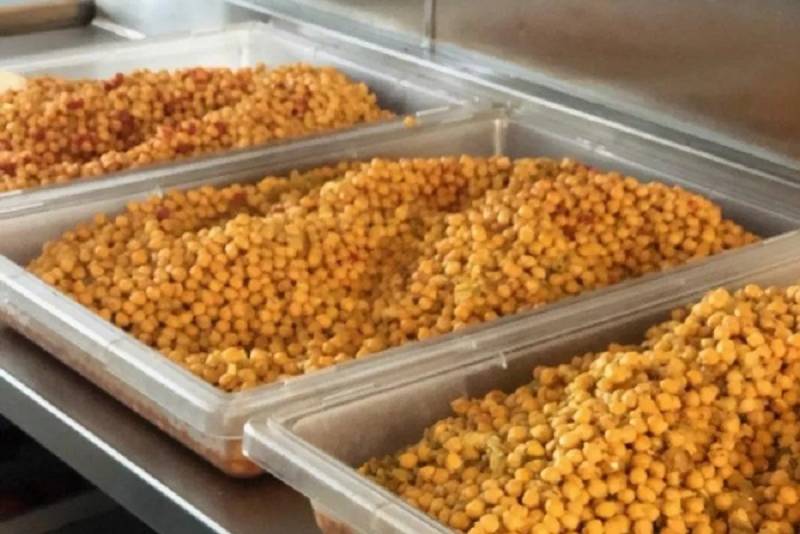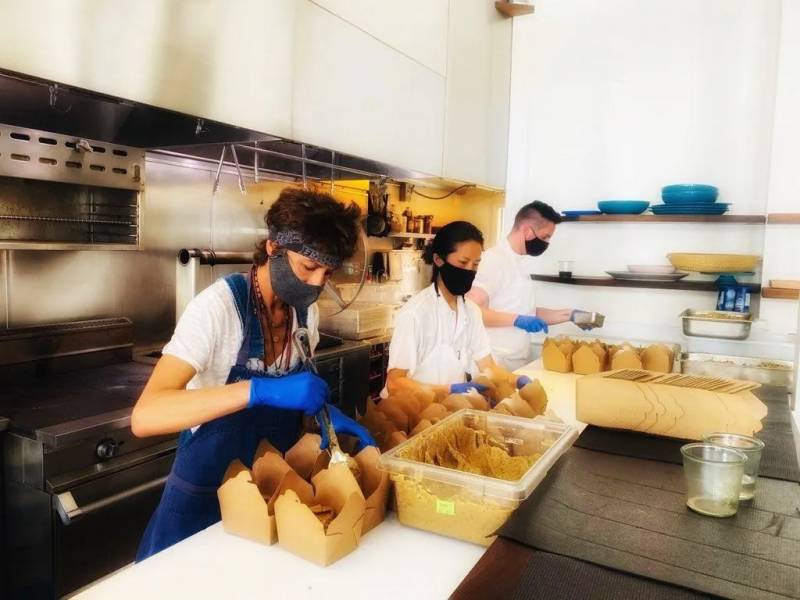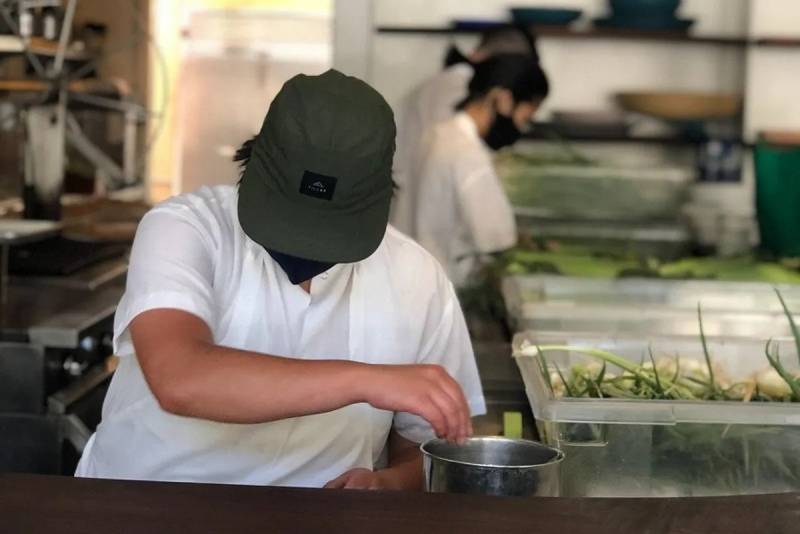Chef Dominique Crenn is well known for rising to the occasion when there are people who need to be fed. Last week, Petit Crenn, the chef's popular Hayes Valley bistro that closed its doors for commercial service on July 7th, rose from the rubble of the COVID-19 crisis in a new iteration: The restaurant has been transformed into a community kitchen devoted to nourishing the city's food-insecure.

"We knew what a meal can do," explains Chiu. The question was "how do we use restaurants at this time to stabilize the economy, rehire workers, and feed people?" The organization realized that by subsidizing Rethink's existing restaurant partners, they could not only keep them and their staff afloat through the crisis, but keep them preparing thousands of meals a day that could be distributed through their trusted nonprofit collaborators to food-insecure households.
Crenn followed Rethink's work closely. For years she had been thinking about ways restaurants could use their assets to feed not just their guests, but the community as a whole. So when the coronavirus erupted, so did an opportunity for collaboration.
"It's literally a win-win situation," she says. "COVID or not-COVID hunger is going to be around forever, but when a restaurant opens their doors, they also have to have a part of the business that will give back to the community. When you give back to the community, you also rebuild."
With a grant, Petit Crenn has been able to rehire a team of staff to feed those in need. The vegetarian, dairy-free meals—like couscous with smoky eggplant and vegetables, the first meal the kitchen produced last week—cost the restaurant $6 a plate to prepare using organic produce from Crenn's farm as well as other locally produced foodstuffs. When the meals are ready, representatives from Glide distribute them to 300 individuals within their assistance network.

